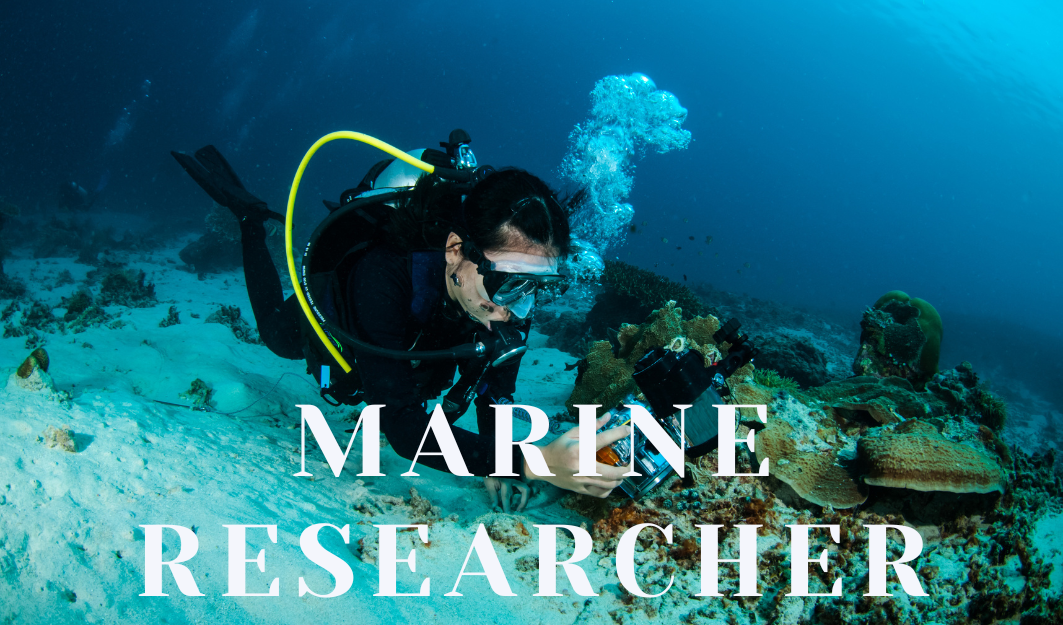Marine Researcher


Marine research is a highly varied career, which means you can study whichever aspects of the ocean fascinate you. A marine biologist or biological oceanographer may work to understand the plants, animals, and microscopic organisms of the ocean and how they interact with their ecosystem. Physical oceanographers can study the ocean’s currents or the geology of the seafloor. Still, chemical oceanographers examine the composition of seawater and how it interacts with the atmosphere and pollutants. Despite these specializations, all facets of the ocean are intertwined, so anyone with a career in marine research must understand the biology, geology, physics, and chemistry of the ocean. On any given day, researchers may be collecting samples in the field, examining specimens or conducting experiments in a lab, or writing reports to present at professional conferences.
Scientific research in the marine world is extremely important for conserving the natural state of the ocean, especially in the face of climate change.
High school coursework:
- Science - as much as you can!
- Math - most marine science programs require several years of advanced math and statistics
- English - learn to write professionally so you can apply for grants and write scientific reports
Classes you could take at Cal Poly:
The classes you take in college will depend on what aspect of the ocean you want to research!
- MSCI 403: Ocean Sampling Techniques
- PSC 201: Physical Oceanography
- CHEM 302: Marine Chemistry
Ways to get experience:
- CALCOFI, CDFW, NOAA, or other seasonal internships
- Opportunities to participate in a season (often 3 months or less) of paid or unpaid hands-on ocean research pop up throughout the year. Check out federal or state organizations for seasonal research positions.
- Help a professor or grad student with research
- Reach out to professors at your local college or university about research opportunities in any scientific field that interests you. This can help you get a feel for what research is all about and can hone your interests.